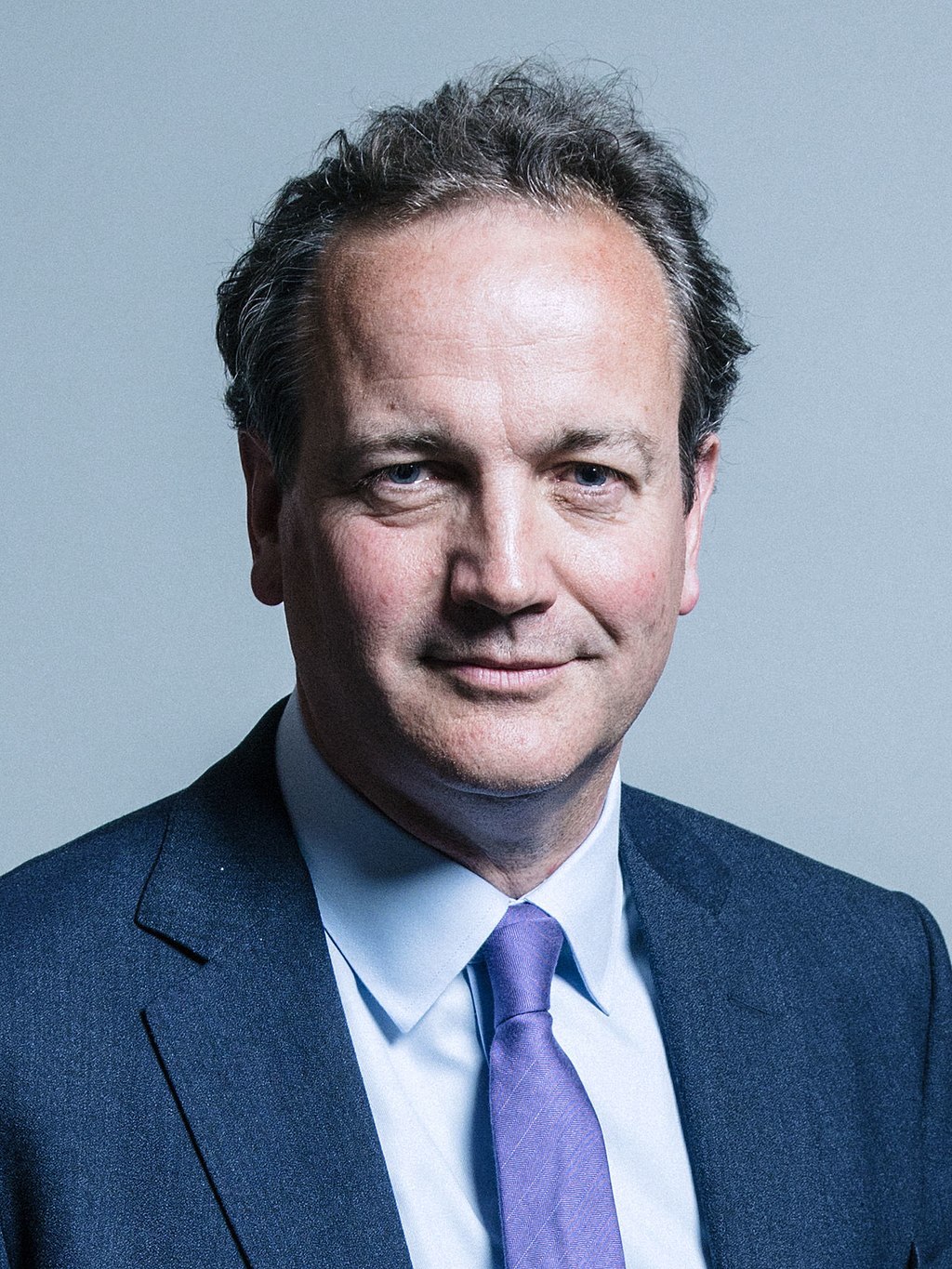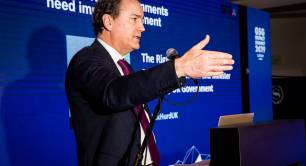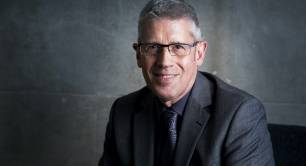G7 Impact Taskforce makes ‘urgent’ call for mandatory impact accounting across business and finance
A group of 120 influential figures in business and finance formed four months ago with a mission to boost impact investing worldwide has urged public and private sector leaders to back mandatory impact reporting for companies and investors.
In its report published today, the G7 Impact Taskforce lays out a series of “actionable” recommendations, which it says decision-makers must adopt to mobilise more private capital towards positive impact – the only way to meet their climate and social goals.
 “The world’s political and private sector leaders have stepped up to the crisis and tried to reassure us with big, ambitious, long-term targets,” taskforce chair Nick Hurd (pictured), a former UK minister, told Pioneers Post in an interview. “On our diagnosis, those commitments will not be met without successful mobilisation of private capital for public good.”
“The world’s political and private sector leaders have stepped up to the crisis and tried to reassure us with big, ambitious, long-term targets,” taskforce chair Nick Hurd (pictured), a former UK minister, told Pioneers Post in an interview. “On our diagnosis, those commitments will not be met without successful mobilisation of private capital for public good.”
Funded by the UK government as part of its G7 presidency, the taskforce was coordinated by the Global Steering Group for Impact Investment (GSG) and the Impact Investing Institute. Its members span public and private sectors and include GSG chair Ronald Cohen, Danone’s former boss Emmanuel Faber, BlackRock managing director Michelle Edkins and CDC Group CEO Nick O’Donohoe.
Among the other recommendations are support for the creation of global impact reporting standards; expanding the use of alternative financial vehicles for impact, in particular in developing countries, such as blended finance; better public-private cooperation; and integration of social and environmental action.
The report's messages are radical and designed to change systems - Nick Hurd
However, only “evidence of real engagement” from decision-makers would establish whether the initiative was a success, Hurd, who is also chair of the UK-based Access Foundation, said.
He added the ball was now in the court of politicians and business leaders to push for more impact transparency and develop investment opportunities for mainstream investors, which would allow them to “make a bigger contribution” to positive impact.
Making sure that decision-makers followed the recommendations was “a fundamental point”, Hurd said. “Our biggest asset in that is the taskforce itself,” he added, with the influential members acting as “ambassadors” in their respective jurisdictions working to “land our messages, press and advocate for change, and to sustain this agenda of how we mobilise private capital at scale to make a more positive social environmental impact.”
Breaking silos
One of the taskforce's workstreams, led by Douglas L Peterson, CEO of data and ratings giant S&P Global, focused on impact transparency, integrity and harmonisation. It recommends mandatory accounting for impact as a key step to attract capital towards impact investing.
“Financial markets can be a powerful force for good, and transparent and comparable standards will be an essential tool for market participants to evaluate and optimise their impact,” Peterson said.
To enable harmonisation and comparability, the taskforce urges governments and regulators to support the efforts of the newly launched International Financial Reporting Standards Foundation’s International Sustainability Standards Board (IFRS-ISSB) to create global standards for impact reporting.
Financial markets can be a powerful force for good, and transparent and comparable standards will be an essential tool - Douglas L Peterson
More transparency on impact would create a “big systemic change in how investment decisions are taken”, Hurd said. Enabling investors and directors to compare the impact of different companies and portfolios would “help to engineer a race to the top”, instead of the current situation where information was incomplete and “impact doesn’t matter enough”, he added.
The second workstream, led by Dame Elizabeth Corley, chair of the Impact Investing Institute, was focused on creating investment instruments better suited for mainstream institutional investors – which hold an estimated $250tn of private capital worldwide.
To enable “the people managing our savings” to invest in impact, there was a need for vehicles that met their requirements in terms of scale, liquidity and risk return, Hurd said. Blended finance or guarantees could be such instruments, especially in developing countries, according to the report.
The taskforce also wants social-first and climate-first investing products to be better integrated, to “break the silos” and create a consistent approach to investing for a “just transition” that works for both people and the planet.
Corley said: “The transition to net zero needs to happen at pace and globally, but transition pathways must also recognise local needs and capacity to secure genuine inclusion and fairness.”
Mobilising private capital for public good requires cooperation between public and private sectors – it shouldn’t be left to “markets alone”, the report argues. In addition to policy and regulation as key enablers for the growth of impact investing, there was a big role for government-backed bodies such as development finance institutions and multilateral investment banks, which the taskforce said should be more focused on catalysing private investment. “That money can be much more effective than it is at the moment,” Hurd said.
That money can be much more effective than it is at the moment - Nick Hurd
Healthy debate
Hurd said he “couldn't have asked for more” in terms of the engagement of taskforce members. That a group of 120 influential figures could produce a report “with some messages that are as radical and designed to change systems as this” was revealing of the growing ambition and pace of change, he added.
“We didn’t duck issues,” he said. There had been some “very big debates” around how far to go and how to “strike the right balance between being pragmatic and provocative”, he added, but they remained “very healthy”.
But more work was needed. “This needs a sustained effort,” Hurd said. He added it was a priority for him to engage with Germany, which will hold the G7 presidency next year, to ensure it “picked up the baton” and enabled the work to continue.
While the new German government had just been formed, conversations had started “informally” with German stakeholders to test their appetite to pursue the taskforce agenda, Hurd added.
Hurd said he was still “agnostic” as to who would be doing the work, but wanted to make sure the impact finance agenda would remain central. The G7 wasn’t the only body that could lead that work, he added, with the G20 currently led by Indonesia and next year’s COP27 in Egypt also in focus.
Part of the mission of the taskforce was to build on the work of the Social Impact Investment Taskforce created in 2014 by then UK prime minister David Cameron, as part of the UK’s G8 Presidency. While the focus at the time had been to put the concept of impact investing on people's radar, Hurd said, “now we're taking that into the mainstream” – so that investment decisions are “looked at through the lens of risk, return and impact”.
Top picture: Nick Hurd speaks at the report launch on Monday; portrait image: official portrait of Nick Hurd, by Chris McAndrew, republished under creative commons 3.0 license
Thanks for reading our stories. As an entrepreneur or investor yourself, you'll know that producing quality work doesn't come free. We rely on our subscribers to sustain our journalism – so if you think it's worth having an independent, specialist media platform that covers social enterprise stories, please consider subscribing. You'll also be buying social: Pioneers Post is a social enterprise itself, reinvesting all our profits into helping you do good business, better.



